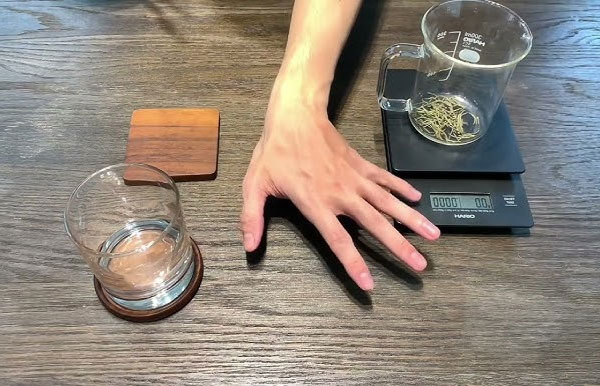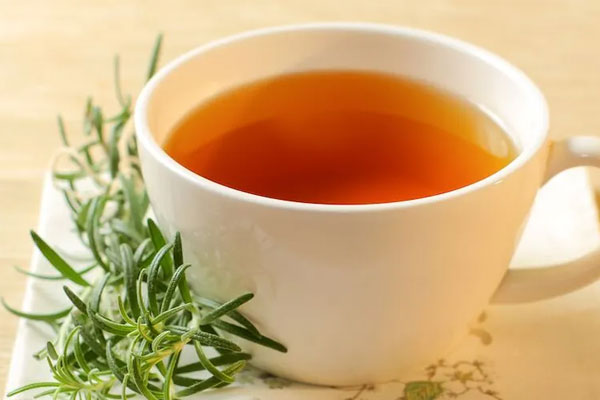Blogs
How much rosemary should I boil?
Rosemary is a fragrant, versatile herb widely used in cooking, herbal remedies, and teas. Known for its distinct aroma and potential health benefits, rosemary is rich in antioxidants, anti-inflammatory compounds, and essential oils.
When boiling rosemary whether for tea, soups, or medicinal infusions it’s important to use the right amount to achieve the best flavor and effectiveness. Using too little may result in a weak infusion, while too much can lead to an overpowering, bitter taste.
This article explores how much rosemary to boil based on different purposes, along with tips to maximize its flavor and health benefits while avoiding common mistakes.

Factors that determine how much rosemary to use
The amount of rosemary you should boil depends on several key factors, including the form of rosemary, the intended purpose, and personal preferences. Understanding these factors will help you achieve the best balance of flavor, aroma, and benefits.
Fresh vs. dried rosemary
- Fresh rosemary has a milder taste and contains more natural moisture, so you may need a larger quantity compared to dried rosemary.
- Dried rosemary is more concentrated and potent, meaning you should use a smaller amount to avoid an overpowering flavor.
- General rule: 1 tablespoon of fresh rosemary ≈ 1 teaspoon of dried rosemary.
Purpose of boiling rosemary
The ideal amount of rosemary depends on how you plan to use it:
- For tea: A small amount (1–2 sprigs fresh or 1 teaspoon dried per cup of water) is enough for a pleasant and aromatic infusion.
- For cooking (Soups, Stews, Sauces): Rosemary is strong, so 1–2 sprigs fresh or ½–1 teaspoon dried per quart of liquid is recommended.
- For herbal remedies (Stronger infusions & decoctions): More rosemary may be needed (2–3 tablespoons fresh or 1–2 teaspoons dried per cup of water) for medicinal benefits.
Personal taste and tolerance
- Some people enjoy a strong, bold rosemary flavor, while others prefer a lighter, more delicate taste.
- If you’re new to rosemary tea or herbal infusions, start with a smaller amount and adjust based on your preference.
- Too much rosemary can result in a bitter or overpowering taste.
Recommended amounts for different uses
The ideal amount of rosemary to boil depends on its intended use. Whether you are making tea, cooking, or preparing herbal remedies, using the right quantity ensures the best flavor and effectiveness.
For rosemary tea
Rosemary tea is a popular way to enjoy the herb’s aromatic flavor and potential health benefits. Here’s how much to use:
- Fresh rosemary: 1–2 sprigs (about 1 tablespoon of leaves) per cup of water.
- Dried rosemary: 1 teaspoon per cup of water.
- Brewing method: Boil water, then add rosemary and simmer for 5–10 minutes. Strain before drinking.
For cooking (Soups, stews, and sauces)
Rosemary adds depth and aroma to savory dishes, but too much can be overwhelming. Recommended amounts:
- Fresh rosemary: 1–2 sprigs for a mild flavor, more for stronger infusion.
- Dried rosemary: ½ to 1 teaspoon per quart of liquid.
- Cooking tip: Add rosemary early in slow-cooked dishes to allow its flavors to blend. Remove whole sprigs before serving.
For herbal remedies (Infusions & Decoctions)
For stronger medicinal benefits, a higher concentration of rosemary may be required:
- Herbal infusion (mild therapeutic use):
- 2–3 tablespoons of fresh rosemary or 1–2 teaspoons of dried rosemary per cup of water.
- Steep for 10–15 minutes.
- Decoction (stronger medicinal use):
- 2–4 tablespoons of fresh rosemary or 2 teaspoons dried per cup of water.
- Simmer for 15–30 minutes to extract more active compounds.
For aromatherapy or bath soaks
Boiling rosemary for steam inhalation or a relaxing bath requires a larger quantity:
- Fresh rosemary: 4–5 sprigs in 4–6 cups of water.
- Dried rosemary: 2 tablespoons per 4–6 cups of water.
For Homemade Cleaning Solutions
Rosemary’s antibacterial properties make it useful in natural cleaning solutions:
- Fresh rosemary: 3–5 sprigs per 2 cups of water.
- Dried rosemary: 1 tablespoon per 2 cups of water.
- Boil for 15–20 minutes, let cool, strain, and mix with vinegar or lemon juice.
Tips for properly boiling rosemary
To get the best flavor, aroma, and health benefits from rosemary, it’s important to boil it correctly. Here are some essential tips to ensure proper extraction while maintaining its nutrients and avoiding bitterness.
Use fresh, high-quality rosemary
- If using fresh rosemary, choose green, vibrant sprigs with a strong aroma.
- For dried rosemary, make sure it’s freshly dried and stored in an airtight container to retain its essential oils.
Measure the right amount
- Follow the recommended amounts based on your intended use.
- Start with a smaller quantity and adjust based on taste preference.
Avoid overboiling
- Boiling rosemary for too long can result in a bitter taste and loss of delicate compounds.
- For tea and mild infusions: Simmer for 5–10 minutes.
- For stronger herbal decoctions: Simmer gently for 15–30 minutes but avoid a rolling boil.
Use the right water-to-rosemary ratio
- Too little water can make the rosemary taste too strong or bitter.
- Too much water may dilute the flavor and benefits.
- A general rule: 1–2 sprigs fresh or 1 teaspoon dried per cup of water.
Cover the pot while boiling
- This helps trap the essential oils and prevents beneficial compounds from evaporating.
- Keeping the lid on ensures a stronger infusion with more aroma and health benefits.
Strain before using
- Always strain out rosemary leaves before drinking or using the boiled liquid.
- This prevents the woody texture from affecting the experience.
Store properly (If making in advance)
- If you boil rosemary in larger batches, store the liquid in a sealed glass container in the refrigerator for up to 48 hours.
- Reheat gently without bringing it to a full boil to preserve its nutrients.
Following these tips will help you maximize the benefits of rosemary while ensuring a smooth, well-balanced infusion without excessive bitterness.

Conclusion
Boiling rosemary can be a great way to extract its flavor, aroma, and health benefits, but using the right amount and technique is key to achieving the best results. The ideal quantity depends on the purpose whether you’re making tea, cooking, herbal remedies, or even natural cleaning solutions.
To get the most out of boiled rosemary, it’s important to measure properly, avoid overboiling, and use high-quality fresh or dried rosemary. Covering the pot while boiling, straining the liquid, and storing it correctly can also help preserve its beneficial compounds.
Following these guidelines, you can enjoy rosemary’s rich taste, soothing properties, and natural benefits while minimizing bitterness and nutrient loss. Whether for health, wellness, or culinary purposes, knowing how much rosemary to boil will help you make the most of this versatile herb.
